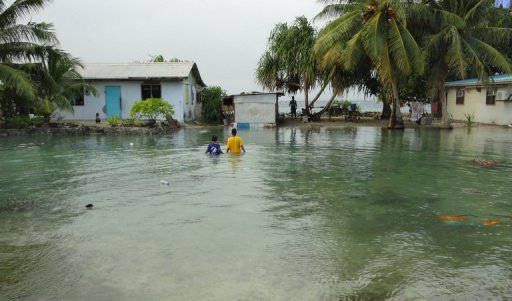The effect of climate change on vulnerable populations among the Pacific Island nations was the subject of “Oceania Speaks,” a conference held in Rome this week attended by the Holy See diplomatic corps, religious communities, and charitable organiSations.
Organised by the Australian Embassy to the Holy See, the 23 June event aimed at raising awareness of the impacts of climate change in the Asia Pacific, already affecting the countries of Tuvalu, Fiji, Samoa, Tonga, and New Zealand.
Archbishop Peter Loy Chong of Suva, Fiji, in a video message insisted “the world has yet to really listen deeply to the voices, particularly to the ‘tagi’ [cries] of Oceania people,” who are vulnerable to the immediate and enduring impacts of climate change.
“We have to educate, empower, and allow the regional voices of peoples of the Pacific to be heard, and not to be dominated and framed by politicians and funders who dominate these climate narratives,” he stated.
According to a United Nations Development Programme report, approximately 75 percent of the population of Pacific island nations are affected by natural disasters.
The report also states that the impact of climate change in the region is “largely overlooked” and poses a serious threat, particularly to young people and future generations who face the potential loss of their homelands, cultural identity, and work opportunities resulting from rising sea levels. The report estimates that sea levels will rise between about 10 inches to 23 inches by 2050.
Throughout his pontificate, Pope Francis has been outspoken on the need for the care of creation as well as the “integral human development” of all people, particularly the poor and vulnerable. In addition to his encyclical Laudato Si’ (2015) and apostolic exhortation Laudate Deum (2023), the Holy Father has addressed the issue of climate change and its rising human cost to world leaders at the UN General Assembly in 2015 as well at COP, the annual UN climate change conference.
At “Oceania Speaks,” Vatican Secretary for Relations with States and International Organisations Archbishop Paul Gallagher echoed Pope Francis’ concern for people facing hunger, exploitation, and poverty due to climate change and emphasised the “urgent need for a unified global response” to the crisis.
“In the context of Oceania, the impending threat posed by rising sea levels to many small Pacific islands states is deeply alarming, reaching beyond mere geographical boundaries,” Gallagher said at the gathering.
“Entire villages [are] on the brink of destruction, forcing local communities — particularly families — into perpetual displacement that erode their distinct identities and cultural heritage. We should also take into consideration the risk of degrading their natural heritage.”
Sister Philomena Waira of the Institute of Sisters of Mercy of Australia and Papua New Guinea also shared her testimony at “Oceania Speaks” and highlighted the ecological and social impacts of foreign mining and logging in Papua New Guinea.
“In the past, people had no problem with food and water. [People] were able to grow crops without fertilisers,” Waira said.
“As the years went by the governments are allowing foreign investors into our countries. After the mining is done, it has affected climate change, peoples’ fishing, and animals have also run away.”
This week, Pope Francis is expected to release his message for the World Day of Prayer for the Care of Creation based on the theme to “hope and act with creation.”
Globally, the month of June marks World Environment Day (05 June 5), World Oceans Day (08 June), and the World Day Against Desertification and Drought (17 June).














